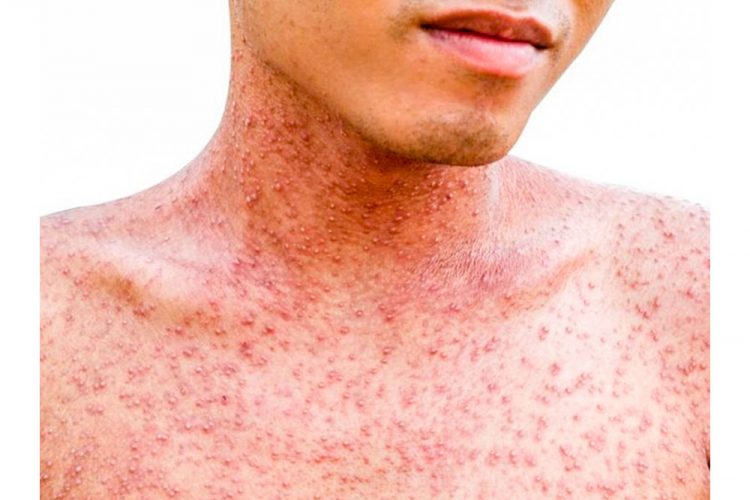Measles: Get Immunized!

Many of us may not have seen what measles look like but would have heard of it. Thanks to the high rates of immunization, this disease is virtually wiped out.
Most Vincentians are immunized against measles when they receive the Measles, Mumps and Rubella (MMR) vaccine. Cases of measles continue to be imported into some Caribbean countries from Europe and North America.
Measles, or rubeola, is a viral infection of the respiratory system. Measles is a very contagious disease that can spread through contact with infected mucus and saliva. An infected person can release the infection into the air when they cough or sneeze.
The measles virus can live on surfaces for several hours. As the infected particles enter the air and settle on surfaces, anyone within close proximity can become infected.
Drinking from an infected person’s glass, or sharing eating utensils with an infected person, increases your risk of infection.
Measles signs and symptoms appear 10 to 14 days after exposure to the virus. Signs and symptoms of measles typically include: fever, dry cough, runny nose, sore throat and inflamed eyes (conjunctivitis). Tiny white spots with bluish-white centres on a red background found inside the mouth on the inner lining of the cheek — also called Koplik’s spots – can appear. A skin rash made up of large, flat blotches that often flow into one another is a common sign. The infection occurs in sequential stages over a period of two to three weeks.
Immunizations can help prevent a measles outbreak. The MMR vaccine is a three-in-one vaccination that can protect you and your children from the measles, mumps, and rubella (German measles).
Children can receive their first MMR vaccination at 12 months, or sooner if traveling internationally, and their second dose between the ages of 4 and 6. Adults who have never received an immunization can request the vaccine from their doctor.
If you or a family member contracts the measles virus, limit interaction with others. This includes staying home from school or work and avoiding social activities.
Dr. Rosmond Adams, MD; MSc (Public Health); M.S (Bioethics) is a medical doctor and a public health specialist with training in bioethics and ethical issues in medicine, the life sciences and research. He is a lecturer of medical ethics and Research Methods.
He is the Head of Health Information, Communicable Disease and Emergency Response at the Caribbean Public Health Agency (CARPHA). He is also a member of the World Health Organization Global Coordination Mechanism on the Prevention and Control of NCDs.
(The views expressed here are that of the writer and not of any organizations). You may contact him at adamsrosmond@gmail.com










